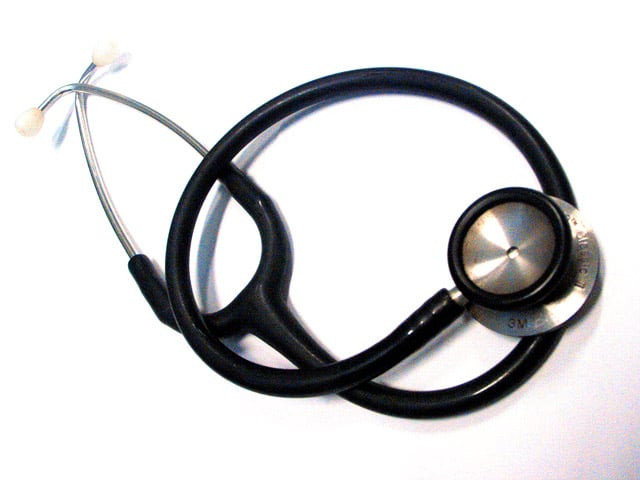Medical colleges’ dilemma
PMA terms move against mid-term resignations a potential violation of doctors’ constitutional rights, the Labour Act.

Principals of private medical colleges called on the UHS vice chancellor, two weeks ago, to discuss their problems including recruitment and retaining of faculty. The meeting decided that they would formulate draft rules and regulations regarding recruitment and discharge of medical faculty. A committee headed by the Continental College principal, Prof Dr Muhammad Akbar Chaudhry, was named to receive recommendations for all stakeholders and after reviewing those submit them to the UHS.
Prof Chaudhry told The Express Tribune that all the principals had sent their proposals and he would soon submit the recommendations to the UHS. There was a suggestion, he said, to disallow faculty members to resign during an academic session. He said that medical teachers had been leaving colleges whenever they were offered a better pay package by another employer.
Punjab PMA president Ashraf Nizami told The Express Tribune that any legislation restricting a person’s career choices would be a violation of basic human rights. He said that private medical colleges had always wanted unfair power over faculty.
He said the PM&DC had been allowing some medical colleges to operate although they did not have well attached hospitals and in several cases lacked the required number of faculty.
He said that according to PM&DC rules, a doctor at a teaching hospital should be assisted by at least three nurses. Also, the medical colleges should have the designated numbers of professors, associate professors, assistant professors and demonstrators for the basic sciences as well as clinical sciences.
He said the state should ensure quality medical education. He added that private medical colleges seemed to have undue leverage with the PM&DC.
He said a former Nishter Medical College principal had joined a private medical college in Multan after he retired. A Jinnah Hospital professor had been helping run two medical colleges in the city during his service. A former Fatima Jinnah Medical College principal, had been running his own private medical college in the city during public service.
He said that demonstrators should have the right to choose the medical college they wanted to teach at. He said that professors who had themselves delivered lectures at more than one private medical colleges and the Health Department which had not stopped them could not take action against them and claim consistency. He said that curtailing a teacher’s right to quit a medical college job would amount to a violation of the Labour Act.
Akhtar Saeed Medical College principal Prof Eice Muhammad told The Express Tribune that the PM&DC, in 2009, had issued a directive laying down that private medical colleges faculty must obtain an NOC from their previous employer before joining another medical college. He said the directive was largely ignored.
PM&DC registrar Dr Ahmad Nadeem Akbar said that inspection of private medical colleges would soon take place and any irregularities that came to light would be addressed.
Published in The Express Tribune, November 10th, 2010.


















COMMENTS
Comments are moderated and generally will be posted if they are on-topic and not abusive.
For more information, please see our Comments FAQ